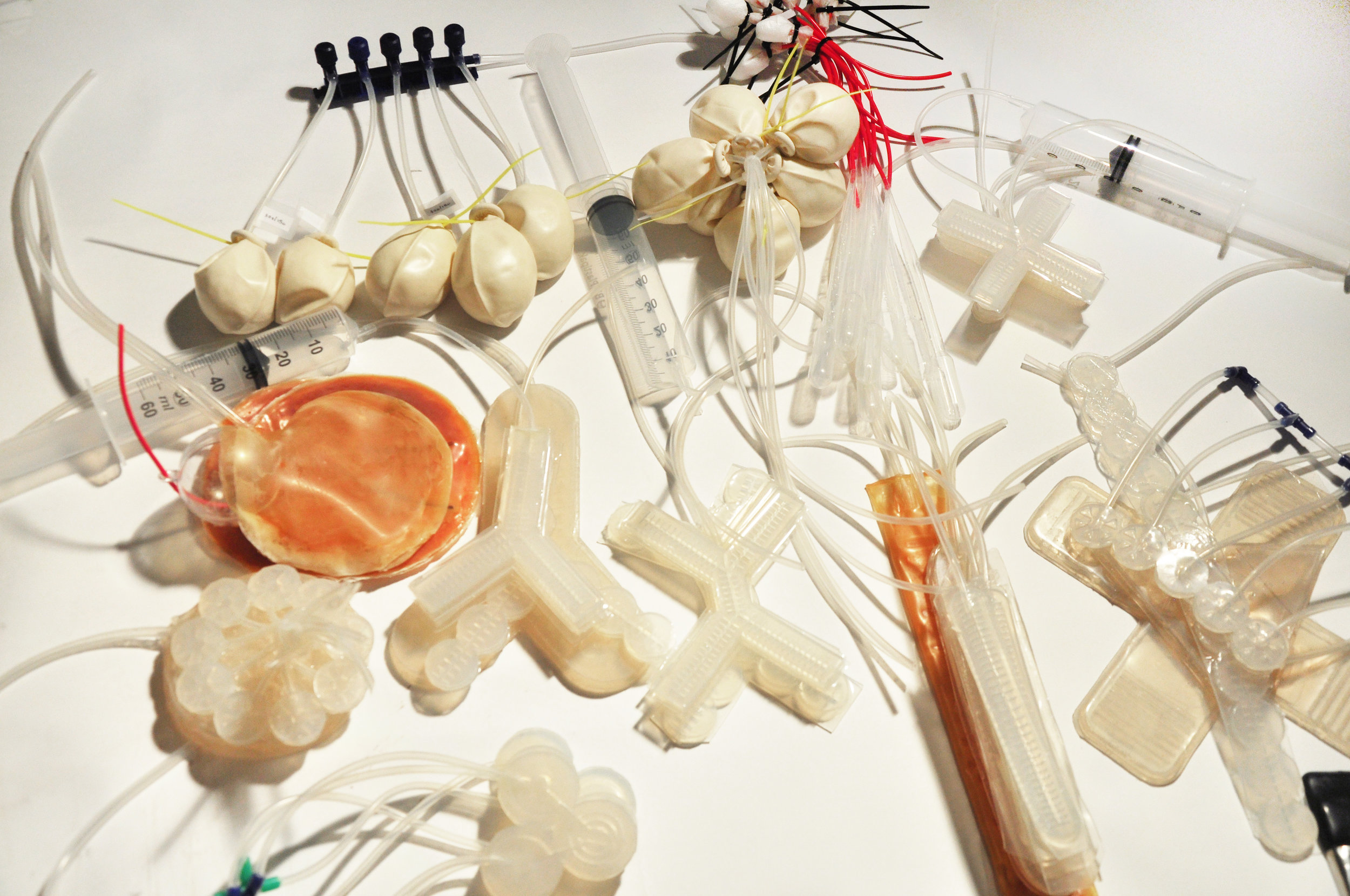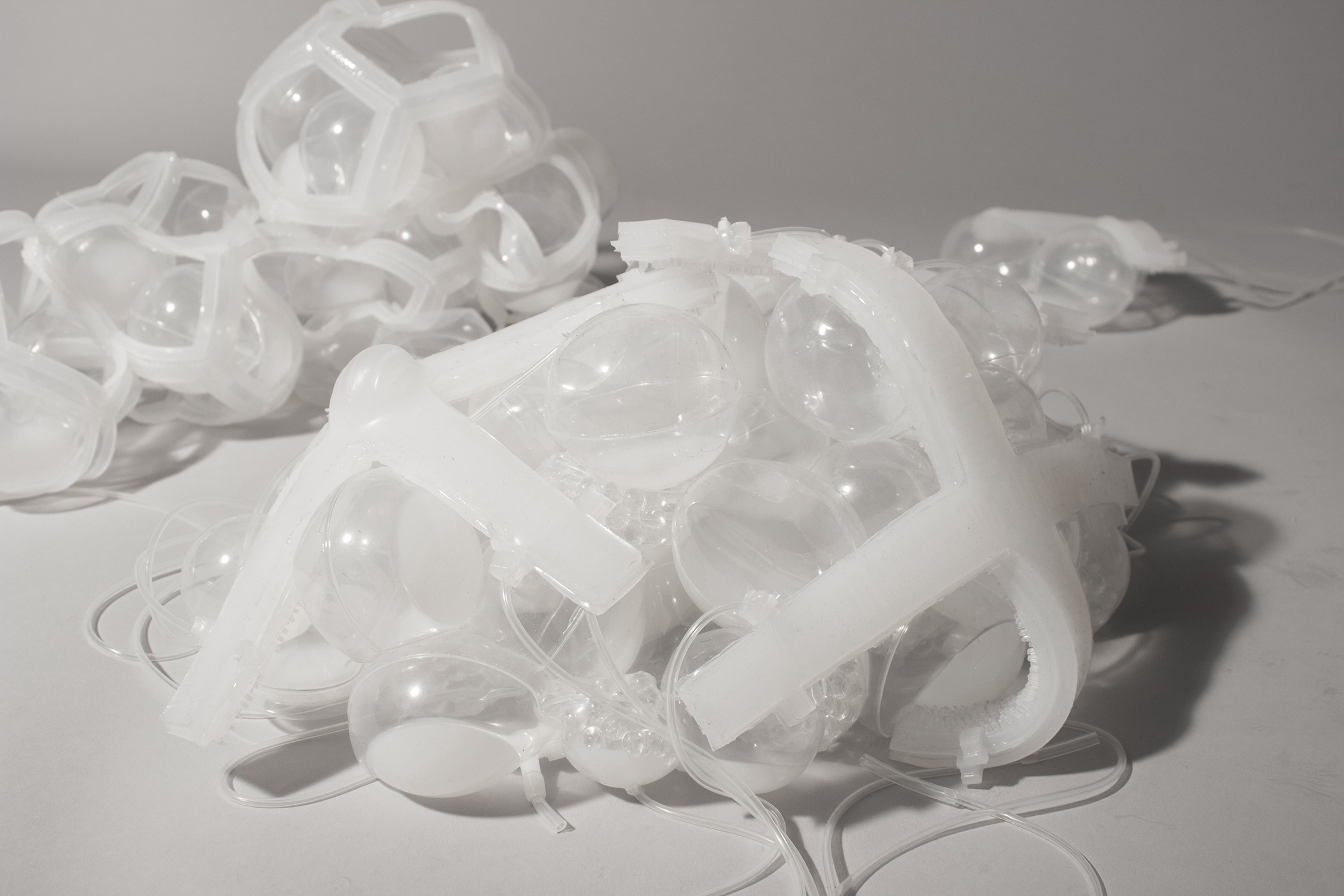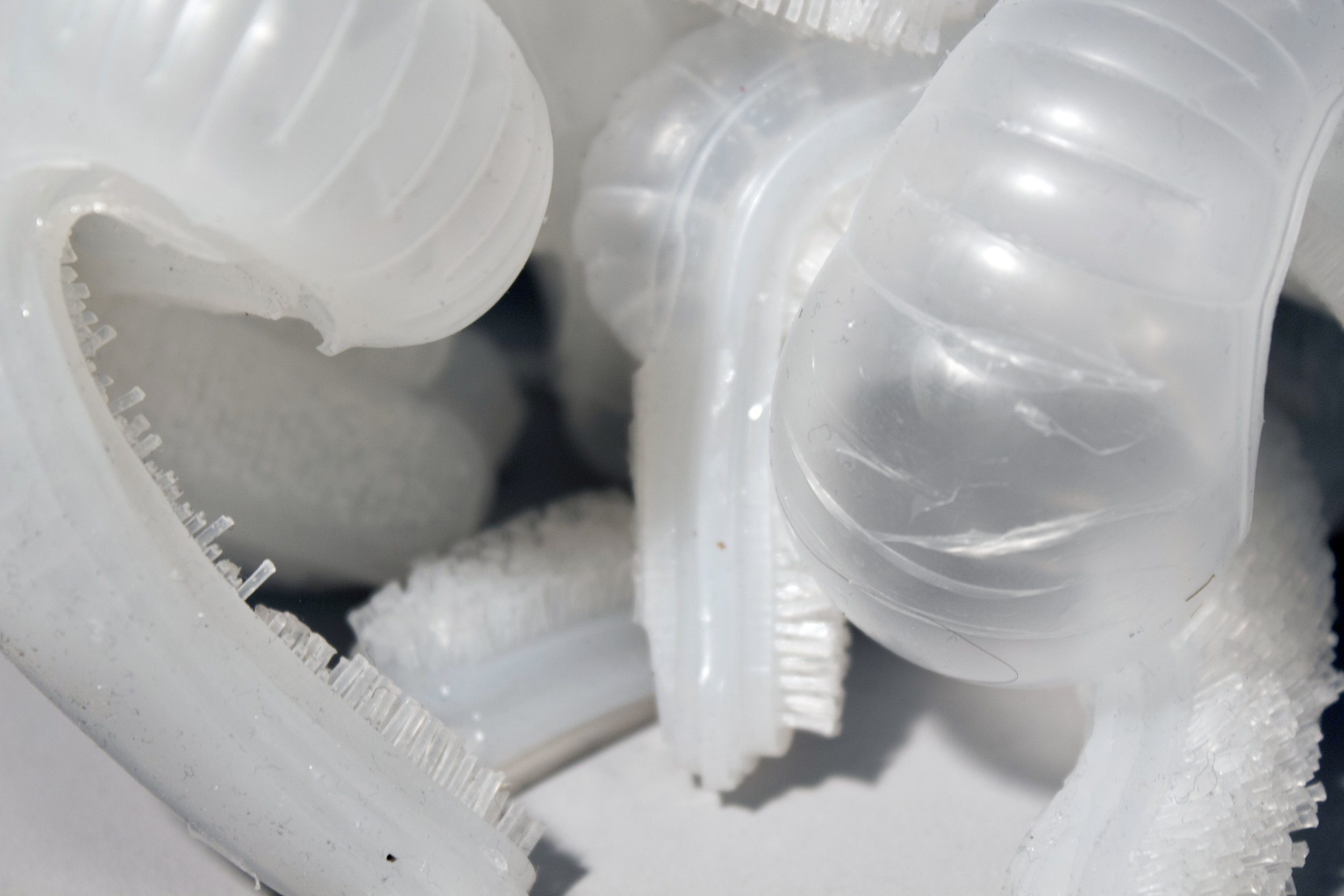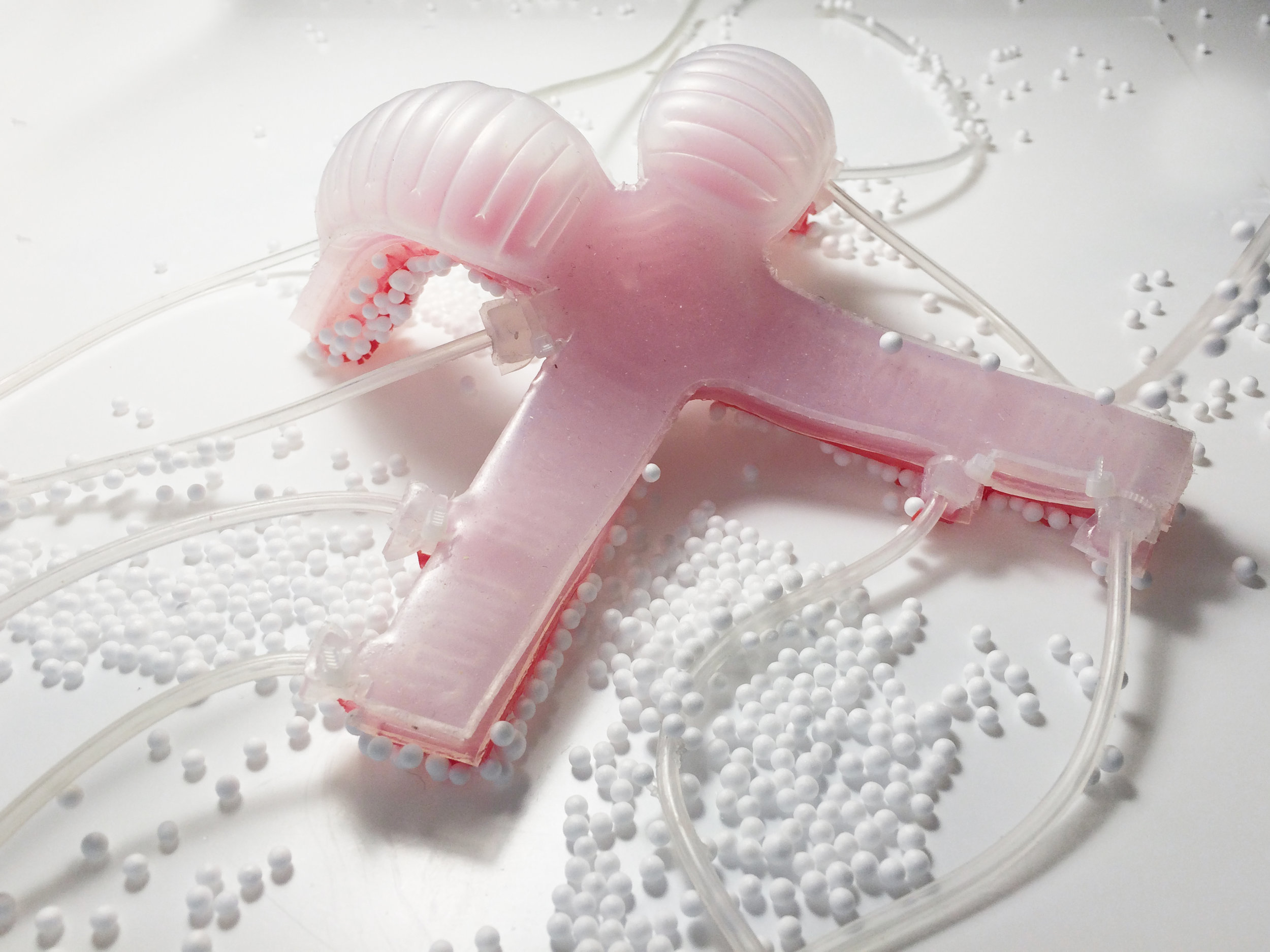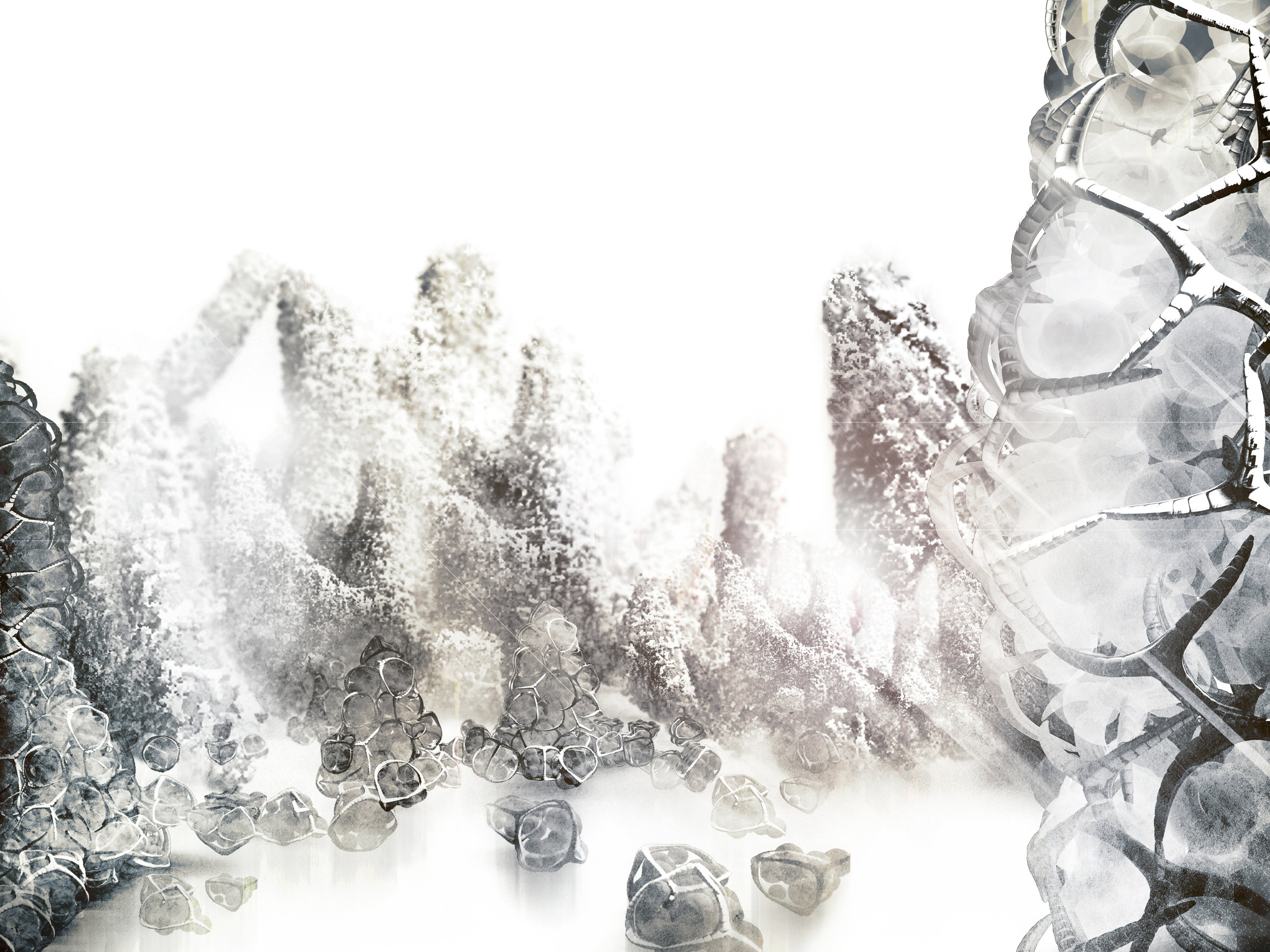Behavioural Complexity 2014-2016
XO
Studio Theodore Spyropoulos
Tutors Mostafa El-Sayed, Apostolis Despotidis
Team Aleksandar Bursac (Serbia), Georgia Tsoli (Greece), Lisa Kuhnhausen (US), Suzan Ibrahim (Sweden / Canada / Iraq)
We see softness as a property that allows for volatility and change in the system. It tolerates a higher level of inexactitude showing great potential to use redundancy as a method to ensure the viability of many outcomes and increase the possible solution space of soft systems. Because softness does not necessarily work with fixed arrangements but rather goes through temporary stages of varying stability, it always presents itself as volatile inhabiting the gradient space between liquid and solid, chaotic and ordered, stable and unstable.
Therefore the interest in our research lies in investigating softness both materially and programmatically, through a self-regulated system that exploits these properties as a technique to deal with problems of mobility, formation and structuring.
To achieve these goals we employ communication strategies which delineate different levels of organization and association in the system based around the idea that they are exerted on speciated ecology.
This ecology comprises two distinct interacting taxonomies which, with separate goals and abilities and division of labour, form symbiotic relationships governed by the rules of interactions that enable them to deal with problems more complex than any single representative of either taxonomy could overcome.
The system therefore becomes an exploration into affiliations and collaborative efforts predicated upon establishing temporary relationships in the ecology, where information exchange creates outcomes that get inscribed into the system as a difference in material property and choreography the actors in the system undertake.



